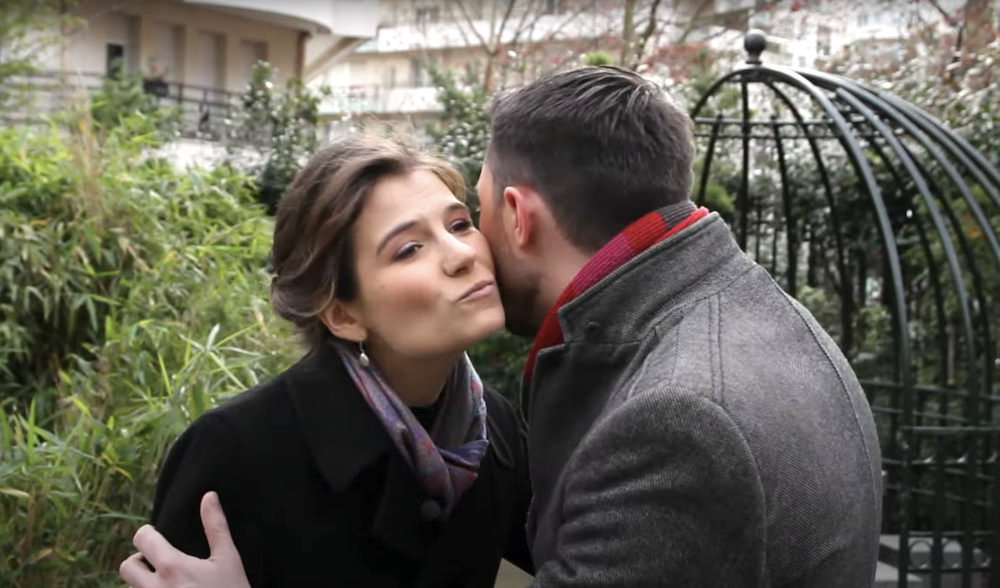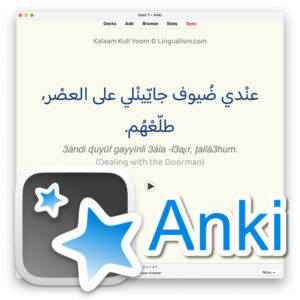Table of Contents
How much do you know about Lebanese greetings?
Lebanon is a small country that is a mix of different religions and has been influenced by various cultures throughout history. These include Ottoman Turk, Arab, and French, all of which contributed to creating Lebanon’s unique culture.
It is normal to see in the streets of Lebanon, a modern woman wearing a mini skirt and a strapless top walking alongside a veiled conservative woman.
Given its unique culture, when you meet people in Lebanon, how do you greet them? How many kisses should you give them?
As a foreigner, it can be tricky. So, to get an idea about the different greeting customs in Lebanon and to help you avoid embarrassing situations, here is an article about meeting, greeting, kissing in Lebanon.
You should begin by asking yourself:
How, When, Where, and Who?
- How? And how many kisses? 1, 2, 3… 4? Is it the left cheek first or the right? A peck on the cheek or a faux kiss in the air?
- When? Arriving? Leaving? Morning? Evening?
- Where? At parties? Gatherings? Business meetings? Weddings? Funerals?
- Who? With the same sex? Opposite sex? Strangers? Close friends? Family? Conservative people?
So, the greeting you use depends on gender, your relationship with the other person, the social setting, and even the time of the day. Properly greeting people is polite, so knowing when to use each greeting is very important.
How
Basically, when Lebanese meet one another, we greet each other with welcoming words (See the “When” section). Lebanese people very often casually address one another–even strangers–as ‘حبيبي,’ meaning “my darling.”
Along with the greeting, we have either a handshake or kisses– usually three kisses, as mentioned previously, cheek to cheek on alternating cheeks, starting with the left cheek. It is reserved for close friends, relatives, and family.
When
Anytime
Being a trilingual country, a popular expression used to greet each other in Lebanon is “Hi, kīfak, ça va?”. ‘Hi’ from English, ‘kīfak’ from Levantine Arabic and ‘Ça va?’ from French. (to acquaintances, friends, or relatives, but not strangers)
Morning
If you are arriving and it is morning, you can say صباحو (to close friends or relatives) and صباح الخير or مرحبا (to strangers, acquaintances, friends, or relatives, that is, anyone).
If you are leaving and it is morning, you can say بشوفك (to close friends or relatives) or باي (to anyone).
Evening
If you are arriving and it is evening, you can say مرحبا (to anyone) or a more formal مسا الخير (to strangers and acquaintances).
If you are leaving and it is evening, you can say تصبح على خير or باي (to anyone).
First Meeting
If you are being introduced to someone for the first time, you say مرحبا تشرفنا as you arrive and تشرفنا بمعرفتك as you leave.
Where
At a party or gathering: When invited to a Lebanese home, it is best to bring a gift (especially cakes, sweets or flowers). The host most probably will say اهلا و سهلا تفضل to which you should reply شكرا. The host will most likely add, as you hand them the gift, ليش عزبت حالك؟ to which you can respond ما في شي من قيمتك. Then you should go to take a seat, and as you walk in, you should greet everyone in the order of their age, beginning with the eldest. Even if the room is filled with people, you should greet everyone present and kiss or shake hands according to the degree of intimacy (refer to “Who” section). It is common to be offered coffee, and it is rude to refuse. It is also impolite to leave shortly after eating (especially if it is a lunch or dinner invitation).
At a wedding: Usually, you will find people forming a big line beginning with the parents of the groom and bride, grandparents, brothers, sisters, uncles, aunts, and even cousins. You should greet every person present one by one and kiss or shake hands, according to the degree of intimacy (refer to “Who” section) saying: الله يهنيهن or simply مبروك.
At a funeral: Here, you will also find family members forming a line. And again, you should greet everyone appropriately and say: العوض بسلامتك or الله يرحمو.
At a business meeting: You should greet every person present one by one with a firm handshake while maintaining eye contact.
At a hospital: You should take flowers with you and say: سلامتك or الحمدالله عل سلامة.
Who
Norms vary whether the person is of the same or opposite sex. Let’s take a look at each:
Same sex
Two men will shake hands and kiss three times in the air if they are close friends or relatives. Some men may rest their hand on the arm of the other person or pat the arm to demonstrate closeness. If they are strangers, casual acquaintances, or are just meeting for the first time, they just smile and shake hands.
Women shake hands with each other and kiss three times cheek to cheek, whether they are casual acquaintances, close friends, or relatives. Their hand might rest on the other person’s shoulder, back, or they may even give a full-on hug to express closeness. But women who are strangers or introduced for the first time just smile and shake hands.
Opposite sex
Usually, two people of the opposite sex shake hands and kiss three times in the air if they are close (friends or relatives). However, if they are strangers or casual acquaintances or have just met for the first time, they simply smile and shake hands.
When greeting a person of the opposite sex who is displaying Islamic dress code (a beard for a man and a veil/hijab for a woman), it is best to greet verbally and let them decide whether to extend their hand first. But most will simply pose their hand on their chest and nod in greeting and avoid a handshake. You should do the same in return. They prefer to not make physical contact with members of the opposite sex. No shaking hands with strangers, acquaintances, and distant relatives, but three kisses and handshakes for closer family members (of the opposite or same sex), such as siblings, parents, grandparents, aunts, and uncles.
Smooch Warning
Older people can go well beyond the three kisses when they greet younger generations, and the kiss feels like forever on each cheek! It is not just a kiss in the air or cheek to cheek but full-on lips to cheek. When I was little, my mom had an aunt that used to visit a lot. I remember very well that my sister and I used to prepare a bottle of rubbing alcohol when we knew she would be visiting. We would even hide to avoid her kisses. But my parents always found a way to find us because she insisted on seeing and kissing us. We dreaded her kisses. She always left drool on our cheeks, and she used to glue her lips on our cheeks and smooch them. After she was done kissing, we usually wiped our cheeks in front of her. My mom punished us one day and told us that it was impolite to wipe our cheek in front of her, but that we can go wash our cheeks in secret later on. And from that day, we would run to the bedroom to wash our cheeks with rubbing alcohol every time she kissed us. I guess one day, she noticed that we always smelled like rubbing alcohol afterward, and she was upset.
COVID-19
And now you have a better understanding of the cultural norms for greeting and kissing in Lebanese culture. Of course, now with the COVID-19 pandemic, it is best to avoid kissing and handshaking of any kind. Make sure to not follow the list above during the pandemic for now! Do not kiss three times–not even one time. Do not even shake hands. And consider yourself warned about elderly Lebanese, for their good and yours–to avoid smooches! My advice, at least for now in our new reality, is to simply greet people by placing your hand over your chest, smiling, and nodding just as you would when you greet conservative people.









It’s quite exciting to know about other cultures and their customs! smooch warning made me laugh lol!
🙂
ممنونك! مثير للاهتمام 😊
تكرم 🙂